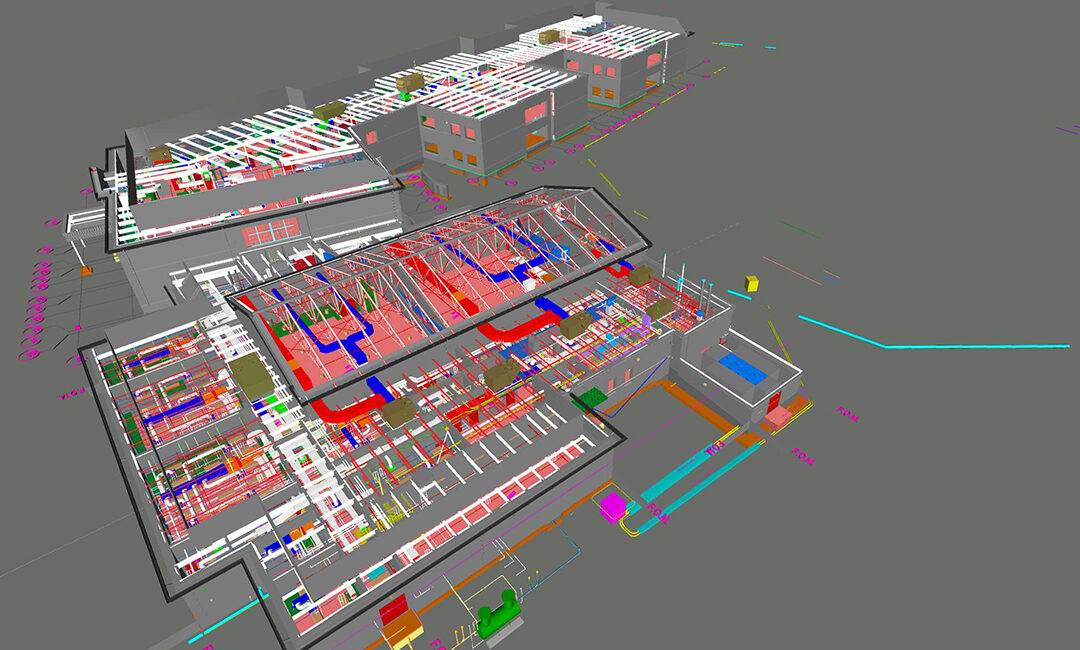Since 1999, the CM EDiS Company has partnered with Appoquinimink School District on their building programs. Starting in 2016, EDiS once again teamed up with the District, this time on the most ambitious school building program in Delaware’s history. Lorewood Grove Elementary School, which opened its doors in September of 2019, represented the first in a series of projects under the 2016 Referendum that will accommodate the needs of the growing student population. In order to see that all designs were both accurate and efficient, EDiS Company brought in the AMP team. The AMP team had a complex job ahead of them: Virtually build, in-house, a fully-coordinated 3D model of the project that would guide the design and layout for all trades.
The AMP team began by implementing the provided 2D design drawings into a 3D generated model. The model included fabrication drawings, shop drawing models, and facility information management models for managing the ins and outs of the building even after construction was finished. In this virtual 3D space, the AMP team builds the entire building and all the systems required using software like Auto-CAD Fabrication MEP, Revit, and Navisworks to visualize and solve any issues that could arise before construction even begins.
Using this process alongside laser-scanning technology to calculate dimensions, they were able to find several areas of conflict. To start, it was discovered that the mechanical room was too small for the type of required system originally in the design plans. Within a three-month period, the entire mechanical room and all its moving parts were coordinated properly, allowing for the necessary space for installation of the entire mechanical system. If it hadn’t been detected before installation, workers in the field would have had to halt the project, uninstall the mechanical system, and produce an entirely new one that could fit properly, resulting in a massive loss of both time and money.
Another challenge was solved when it was determined from the 3D model that the chiller unit couldn’t fit within the building. Using Auto-CAD Fabrication MEP software, the AMP team implemented a redesign. The chiller unit could combine with the cooling tower to form one unit and was installed outside instead of inside like the original design called for. The combined unit saved space that wasn’t there to begin with, translating into saved money that would have cost the project a great deal to fix if discovered during actual construction.
After examining the 3D model during coordination, it was also discovered that a fire-coded area requiring no mechanical systems running through it, actually did. A mechanical redesign was necessary, especially considering the fire-coded area was the main stairwell for Lorewood Grove Elementary students and staff. The AMP team quickly rectified the situation and designed a new route for the mechanical system to flow through. Without it, the entire fire-coded area would have needed to be first removed and then reconstructed. Once again, the AMP team was able to save time and money for a costly mistake made in the original design. Without pre-construction coordination, any project is far more likely to contain mistakes not normally detectable to the normal eye.

The upper-mechanical system for Lorewood Grove

